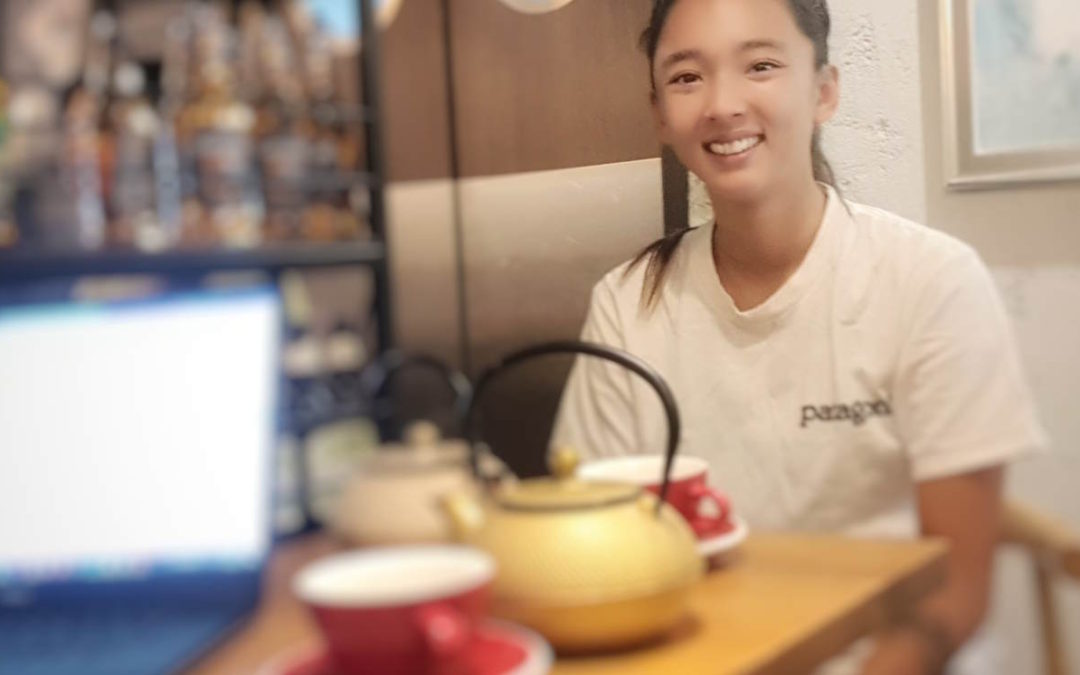Passion, patience and curiosity.
Drones are one of the hottest new technologies. They’re being used almost everywhere. Creating flying light shows, shooting incredible videos of volcanoes spewing lava, as well as more industrial applications like pipeline and ship inspection. None of which is easy, and that’s why it was so exciting to meet Singapore’s first professional female drone pilot, Sephora Chua!
Sephora didn’t grow up wanting to be a drone pilot, she’d never even played a flight simulator or any flying games before (she was more of a shoot ‘em up fan). Her career started as a medical officer, working in ambulances and supporting sports teams – like the rugby league she plays in. Like many other pilots, she discovered her passion for piloting drones almost by accident. Here’s what she had to say…
Going from medic to drone pilot seems like an enormous career change, how did you manage that?
Working as a medical officer was great, I loved helping people. When I got the opportunity to become a drone pilot though, I couldn’t say no. Ever since I was little my mum has always been encouraging me to try new things. Even with food, no matter how much I didn’t want to eat something – she’d always insist I take a bite and try it before saying no. She was very supportive of the idea. My mum kept reminding me that being happy at work was more important than my qualifications.
The other thing is, I knew wasn’t going to learn anything new, or grow personally, if I wasn’t really motivated to go to work. Your passion for your work makes all the difference.
What’re the keys skills for professional drone pilots?
Situational awareness and communication skills are important. You need to be aware of what you’re flying over, what’s around you, as well as where the no-fly zones are. You’ve got to be in constant contact with your team and your co-pilot whilst you’re working. Keeping the team up-to-date on what you’re seeing, and asking them questions. It’s not a one-person job, you’d don’t know everything, and you’re relying on your teammates to help you complete the mission.
Some of the missions can take a whole day. So you have to have a lot of patience, and really be able to stay focused.
How did you develop that patience and the ability to stay focused?
As a child I was never a patient, I was always impulsive and unable to wait. I wanted to do everything immediately. Working as an outdoor kid’s camp coordinator taught me some good lessons on patience! It also taught me to understand people and why they’re doing things.
I learnt to focus whilst being a medic. I needed to be wholly focused on a patient, constantly watching their vitals and condition like a hawk. Even for things like a concussion, it’s not simple, you need to be constantly watching for the signs/symptoms.
Translated to performance rotors, it’s about having the patience to understand & learn from people more experienced than me about the drones.
As a pilot, why do you spend so much time learning about drone engineering?
It’s important to understand exactly how and why things work. So that if there’s any type of issue I can manage the situation. It makes all the difference when you know exactly what you’re flying.
That’s why I spend so much time working with the engineers, constantly experimenting and learning about the drones. I’ve made lots of mistakes soldering wires and burning out components. The more I experiment, ask questions and provide feedback, the better our drones become. They perform better, we get better pictures, better behaviors and ultimately better outcomes.
What type of drones have you flown?
A really wide range! We use DJI Matrice & Mavericks for thermal imaging and Facade inspections. In house specialist waterproof drones for Jetty inspections and the Ravens and Sparrows for confined space inspection, getting visuals on corrosion on the external surfaces of oil/water pipes, or flying through underground tunnels and inside storage tanks where there is no GPS connectivity.
What do you like to read?
I love reading journals and magazines about new developments. I really enjoy reading biographies too. It’s great to know about real people, their struggles, and how they dealt with them – it’s very real. I love reading, because the more I learn, the better I feel.
TLDR
Sephora hasn’t had a straight forward career path, and certainly didn’t grow up wanting to be a drone pilot. Her curiosity and willingness to try new things got her into the field, and that same inquisitiveness keeps her fascinated and learning about drones. Most importantly, there’s hope for parents everywhere, because she wasn’t born with an incredible amount of patience and focus – despite being so important for her job, that’s something she’s learnt over time.



